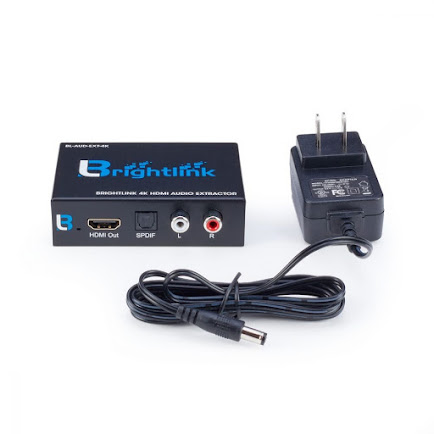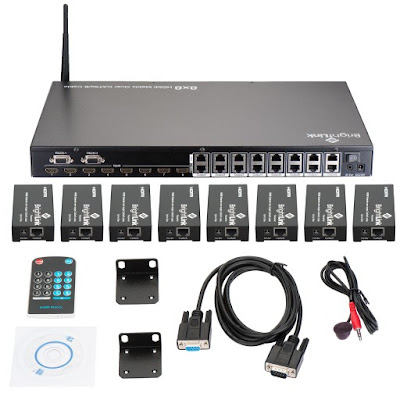Understanding HDMI cable. What is the operation of HDMI over Fiber?
HDMI stands for
High-Definition Multimedia Interface. It is a digital connection capable of
transmitting high-definition (HD) video and high-resolution audio over a single
cable. Consequently, HDMI cables decrease the cost, complication, and ambiguity
involved with using multiple audio and video connectors.
With a fresh new
HDMI cable, a Fiber over HDMI
extender is a newer technology. It features converters over both
ends that assist in converting AV signals to HDMI signals before transferring
them to the secondary source. As a result, no signal degradation over long
transmission distances, which is a critical advantage of utilizing these
cables.
What you can do
with this technology is link a variety of home AV equipment to make your life
easier. However, technological advancements have made life simpler since HDMI
is now available for laptops and PCs, making it simple to transport
high-quality AV signals from device to device in the corporate and commercial
sectors.
How does an HDMI over fiber connection work?
• HDMI optic
fiber is utilized in our professional and personal life to achieve high
bandwidth, speed, and data rate applications. Because it is fully based on
electrical impulses, fiber opticwith hdmi cable is differing from copper wire
transmission in flexibility and transmission speed.
•When data is
sent into an optical fiber communication network that uses extenders as
electrical impulses, the local transmitters unit converts it into an optical
wave using a light source like a laser.
• A fiber optic
cable delivers the beam of light from the source to the destination, in which
it is converted back to electrical impulses by remote reception equipment.
What are the benefits of fiber optic transmission over
copper wire transmission?
• Broadened Bandwidth
• Increased speed
over longer distances
• Enhanced
Resistance
• Enhanced
Security
What characteristics does the Bright link HDMI extension
over fiber have?
2. HDMI Extender
with Single/Duplex Fiber and Support for Single/Multi-Mode (Optional).
3. It has LPCM
7.1 (Linear Pulse Code Modulated Audio), Dolby True HD, and DTS-HD Master Audio
compatibility.
4. Comes with
Automatic EDID for quick source and display integration.
5. Resolutions
supported include Ultra HD 4kx2k@60hz and YUV4:2:0 (Requires 10 g modules). It
complies with HDCP requirements. The key benefit of this HDMI extender is that
both the sender and receiver may use devices that can easily extend signals up
to 60 kilometers using optical fiber.





Comments
Post a Comment